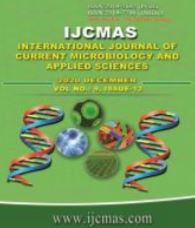


 National Academy of Agricultural Sciences (NAAS)
National Academy of Agricultural Sciences (NAAS)

|
PRINT ISSN : 2319-7692
Online ISSN : 2319-7706 Issues : 12 per year Publisher : Excellent Publishers Email : editorijcmas@gmail.com / submit@ijcmas.com Editor-in-chief: Dr.M.Prakash Index Copernicus ICV 2018: 95.39 NAAS RATING 2020: 5.38 |
Biodiversity is the variability of all life forms including the flora and fauna species, which provide potential human benefits. Genetic resources and species are unevenly distributed over the planet. Nagoya Protocol on Access to Genetic Resources and the Fair and Equitable Sharing of Benefits Arising from their Utilization to the Convention on Biological Diversity was adopted on 29 October 2010, in Nagoya, Japan and came into force from 12 October 2014. The present investigation on comparative study of institutional structure and legal framework of four selected countries viz. India, Mexico, Peru and South Africa possessing rich biodiversity and representing four continents was based on secondary data compiled from Nagoya Protocol and National Authority websites. The analysis of the reports of the sample countries revealed compliance with the obligations of the Nagoya Protocol by designating the National Focal Point (NFP) and Competent National Authority (CAN). Among the countries, India and South Africa have one CNA each, while Mexico (6) and Peru (4) with designated departments to provide more focused and better management of access and benefit sharing of the resources. India is the leading country with 1006 Internationally Recognized Certificate of Compliance with distantly followed South Africa with only 32 IRCCs. All sample countries have the unitary type of administrative set up to implement the protocol except India which has three tier structure with BMCs, State Biodiversity Board and National Biodiversity Authority. The parties under study have made use of their existing legislative provisions with amendments to implement the Nagoya protocol.
 |
 |
 |
 |
 |